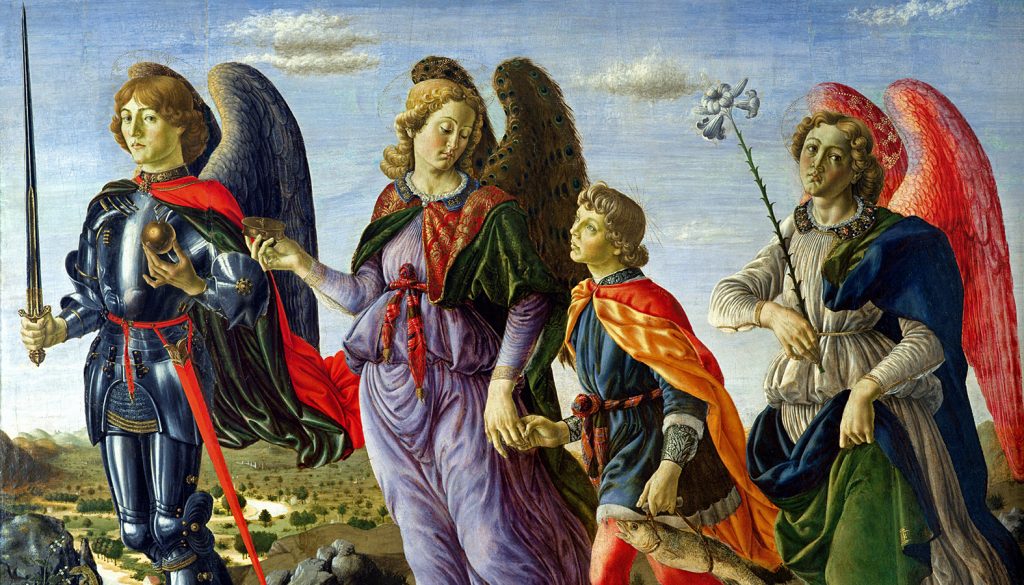Today the Church celebrates the three archangels Michael, Gabriel, and Raphael. All three are named in Scripture, and played important roles in the history of salvation.
St. Michael the Archangel is the “Prince of the Heavenly Host,” the leader of all angels. In Hebrew, his name means “who is like God,” which was the battle cry of the angels against Lucifer and his followers after they rebelled against God. Michael is mentioned four times in the Bible, in Daniel 10 and 12, in the letter of Jude, and in Revelation.
Michael cast Lucifer and the evil spirits into Hell. He is invoked for protection against Satan and all evil. In 1899, Pope Leo XIII had a prophetic vision of the evil that would be inflicted on the Church and the world in the 20th century. He instituted a prayer asking for St. Michael’s protection, to be said at the end of every Mass.
According to Christian tradition, there are four offices of St. Michael:
- to fight against Satan
- to rescue the souls of the faithful from the power of the enemy, especially at the hour of death
- to be the champion of God’s people
- to call away from earth and bring men’s souls to judgment
St. Gabriel, whose name means “God’s strength,” is also mentioned four times in the Bible. In the New Testament, most significantly, he announces the birth of John the Baptist to his father, Zacharias, and appears to the Virgin Mary at the Incarnation of the Word in her womb.
Christian tradition suggests that Gabriel also appeared to St. Joseph and the shepherds, and that he “strengthened” Jesus during his agony in the garden of Gethsemane.
St. Raphael’s name means “God has healed,” because he heals Tobias’ blindness in the Book of Tobit. This is the only place Raphael is mentioned. His office is traditionally accepted to be that of healing and acts of mercy.
Raphael is also identified with the angel in John 5:1-4, who descended upon the pond and bestowed healing powers upon it, so that the first to enter it after it moved would be healed of whatever infirmity he was suffering.

